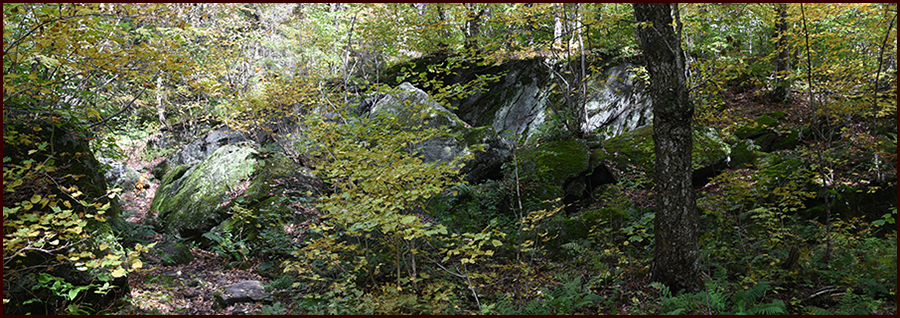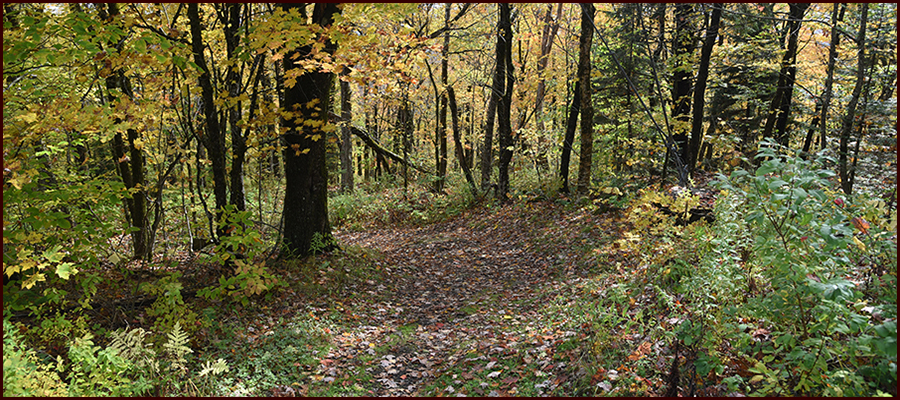The Old Trail Words and Music by Steve Gillette & Charles John Quarto
I believe that nature is the best model for a personal philosophy. Spending time in the wild is restorative. A walk in the woods is clearly a good thing. In many cultures, separation from nature is seen as insanity, or worse. Not that all aspects of nature are supportive of every human concern. But in spite of its dangerous denizens, from the aardwolf to the zebra shark, it is the true medium in which we live. It is our nature. By that I don't mean that we own it, I mean that it is what we are.
And to deny that we are all natural beings and that our behavior (which is much more devastating to each other and to the earth itself than anything found in the animal kingdom) is somehow of some other realm is not only false, but ironic, since we are the only ones who claim to be able to distinguish between good and evil.
As a Boy Scout I hiked the Silver Moccasin Trail and the Golden Arrowhead Trail and climbed Old Greyback (Mt. San Gorgonio, 11,503 feet) on paths used by the Chumash, Cupeño and Cahuilla long ago. Since then we have hiked in every state, in the Canadian Rockies, the Maritimes, the Cliffs of Moher, the Pyrenees, the Dolomites and the Alps. I slept through a chance to climb Mt. Fuji with a group of musicians where Paul Winter played for the sunrise, a chance that won't come again.
From the Tor at Glastonbury, you can see for miles across the English countryside in all directions. There is a metal plate there with the names of a dozen or more Ley lines that intersect on that spot. It's believed by some that these represent ancient paths, trade routes, even guides for the positioning of sacred sites from neolithic and bronze-age cultures. The famous "Long Man of Wilmington" in Sussex is believed to depict a prehistoric surveyor. There is a deism of place, and it's easier to explore it on foot.
Research from Nippon Medical School in Tokyo shows that a nature walk changes blood flow in the brain to a state of relaxation and increases the number of natural killer cells the body produces to battle infection. Our brain gently registers the wind in leaves and the sound of the waves, revitalizing a fatigued mind. Trees release antimicrobial essential oils, called phytoncides. These are the olfactory-provoking chemicals that protect the trees from germs and have a host of health benefits for humans as they also reduce stress hormones.
Other results from the study report that walking in nature:
"Improves aerobic capacity for more efficient oxygen intake as your body burns fat and sugar more efficiently while you're walking. You'll learn to pace yourself so you can keep going all day without getting tired. Your body will learn to be more relaxed, the benefit of which is immeasurable. You'll become a master of your body, and be able to accomplish any goal you set for yourself. You will learn to focus and relax your mind. You will learn patience as you walk longer distances. And you'll learn to use your mind to overcome adversity."
A study from the University of Michigan suggests that: "Getting your daily steps in could lead to better cardiovascular health, reduced stress, improved mood and self-esteem, healthy weight, strengthened bones, and boosts in creative thinking." A British study found that simply walking in green spaces may put the brain into a state of meditation.
The theme of meditation is close at hand if not mentioned specifically in our song. The idea of slowing down to be more in sync with the rhythms of nature; as the old trail "moves at the speed of a sweet love song. And the wind through the trees carries her own wind chime." That's Charles' line and typical of his poetic voice.
Our song is just one of many that celebrate the simple joys of nature. The idea that modern development can be insensitive to or even destructive of the natural world has been with us for a while now. We lament the clear-cutting of the forest by the "new ridge road" as it "slices through the woods like there ain't nobody home." Many of these thoughts are common to a tradition of songs romanticizing what has been lost. This song doesn't attempt much beyond that, just trying to do it in a melodic and encouragingly calming way.
Here's Don Williams' recording of "The Old Trail" provided by Sony. Kathy Mattea sings beautiful harmony with Don on this recording.
Don Williams performing "The Old Trail," with Kathy Mattea singing harmony
Cindy and I performing the song at the Cook Shack in North Carolina:
Steve Gillette & Cindy Mangsen perform "The Old Trail"
You can find the song on Steve's album "The Ways of the World," available on CD or MP3 album here.
Here are the lyrics as we sing it:
There's a new ridge road that cuts the mountain to the bone Slices through the woods like there ain't nobody home You can wheel on up to valley view and you won't ever feel the climb But I take the old trail every time The old trail moseys right along Moves at the speed of a sweet love song And the wind through the trees carries her own wind chime I take the Old Trail every time Lately it seems things vanish by degrees How soon we forget we made our tree houses out of trees When are we gonna realize some reasons just don't rhyme I take the Old Trail every time The old trail, may she never fade The one where the deer always have the right of way How I love to watch the wintergreen along the timberline I take the Old Trail every time People in cars let the radio do the talking But I always find that I'm singing when I'm walking The old trail, moseys right along Moves at the speed of a sweet love song And the wind through the trees carries her own wind chime I take the Old Trail every time.
© 1990 Foreshadow Songs, Inc. BMI


